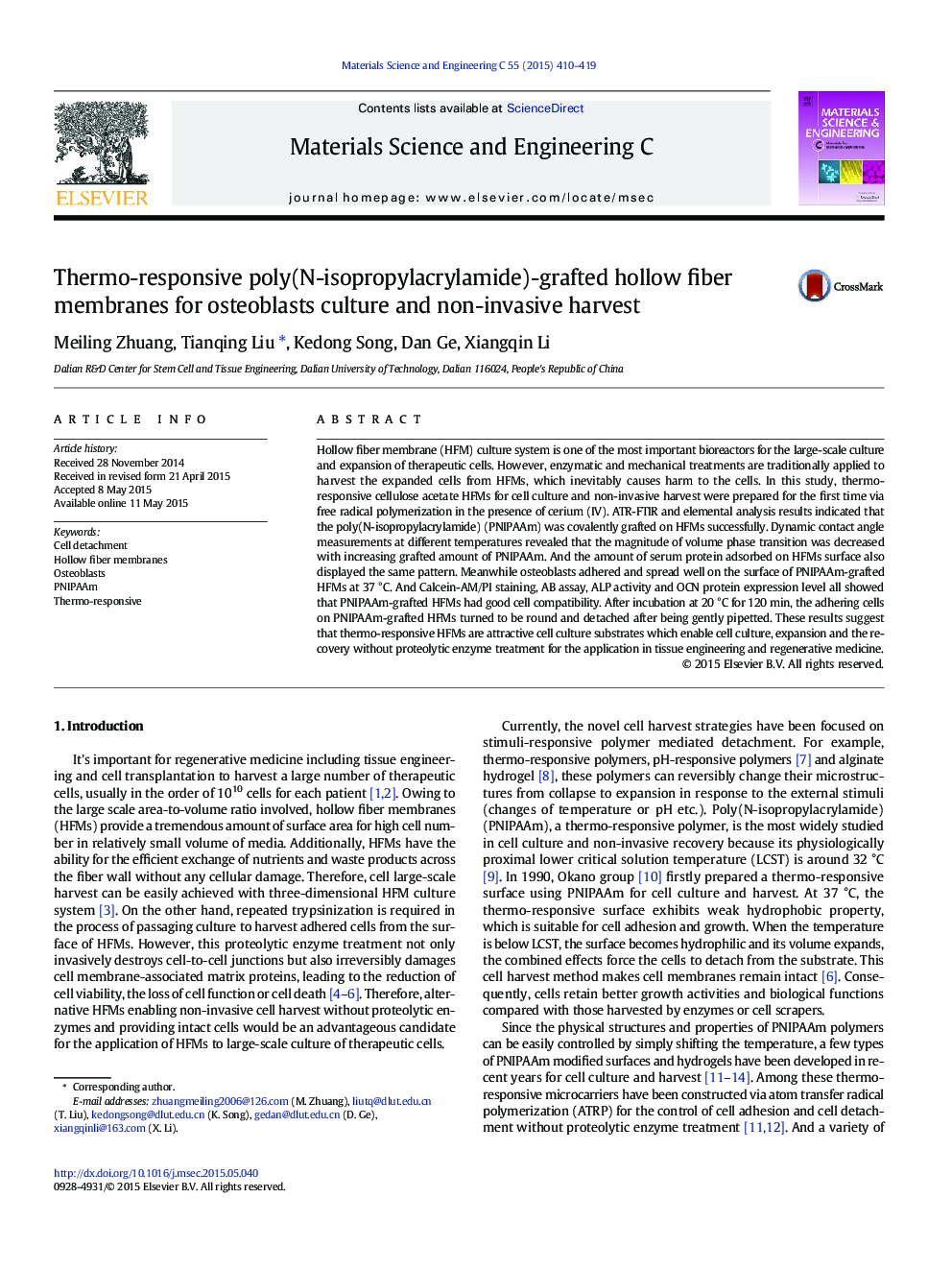| Article ID | Journal | Published Year | Pages | File Type |
|---|---|---|---|---|
| 7869335 | Materials Science and Engineering: C | 2015 | 10 Pages |
Abstract
Hollow fiber membrane (HFM) culture system is one of the most important bioreactors for the large-scale culture and expansion of therapeutic cells. However, enzymatic and mechanical treatments are traditionally applied to harvest the expanded cells from HFMs, which inevitably causes harm to the cells. In this study, thermo-responsive cellulose acetate HFMs for cell culture and non-invasive harvest were prepared for the first time via free radical polymerization in the presence of cerium (IV). ATR-FTIR and elemental analysis results indicated that the poly(N-isopropylacrylamide) (PNIPAAm) was covalently grafted on HFMs successfully. Dynamic contact angle measurements at different temperatures revealed that the magnitude of volume phase transition was decreased with increasing grafted amount of PNIPAAm. And the amount of serum protein adsorbed on HFMs surface also displayed the same pattern. Meanwhile osteoblasts adhered and spread well on the surface of PNIPAAm-grafted HFMs at 37 °C. And Calcein-AM/PI staining, AB assay, ALP activity and OCN protein expression level all showed that PNIPAAm-grafted HFMs had good cell compatibility. After incubation at 20 °C for 120 min, the adhering cells on PNIPAAm-grafted HFMs turned to be round and detached after being gently pipetted. These results suggest that thermo-responsive HFMs are attractive cell culture substrates which enable cell culture, expansion and the recovery without proteolytic enzyme treatment for the application in tissue engineering and regenerative medicine.
Related Topics
Physical Sciences and Engineering
Materials Science
Biomaterials
Authors
Meiling Zhuang, Tianqing Liu, Kedong Song, Dan Ge, Xiangqin Li,
